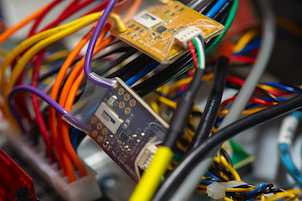
PNNL’s Seapearl compute cluster can closely monitor and measure power and temperature in high-performance computing systems.
Pacific Northwest National Laboratory has opened the CENATE Center for Advanced Technology Evaluation, a first-of-its-kind computing proving ground. Designed to shape future extreme-scale computing systems, CENATE evaluations will mostly concern processors; memory; networks; storage; input/output; and the physical aspects of certain systems, such as sizing and thermal effects.
A central focus on examining the prediction of potential future extreme-scale high-performance computing systems has been missing from DOE’s HPC research community,” said Adolfy Hoisie, PNNL’s chief scientist for computing and the principal investigator and director of CENATE. “In PAL, we already have applicable resources and experience amid its considerable modeling and simulation of systems and applications portfolio to undertake the empirical evaluations, and we have steadily invested in dedicated infrastructure. CENATE will allow us to bolster our dedicated laboratory with leading-edge testbeds and measurement equipment for rapidly evolving technology evaluations. We also will make the most of our industry connections, adding ‘loaner’ equipment to CENATE’s technology mix as appropriate.”
CENATE’s testbeds also will accommodate larger-scale advanced scalability platforms with hybrid or homogeneous processor technologies and state-of-the-art network infrastructures, as well as disruptive technologies not typically evaluated as physical testbeds, such as Silicon Photonics or quantum computing.
“We’ll strive for CENATE to become the premier destination for technology evaluation, measurement facilities, testbeds, and predictive exploration—driven by transparency and collaboration—that will shape the design and capabilities of future exascale computing systems and beyond,” Hoisie added.
High-performance computing systems at the embedded or extreme scales are a union of technologies and hardware subsystems, including memories, networks, processing elements, and inputs/outputs, with system software that ensure smooth interaction among components and provide a user environment to make the system productive.
Before next-generation supercomputers can get to work solving some of the nation’s biggest problems, CENATE’s evaluation of early technologies will help predict their overall potential and guide their designs will help hone future technology, systems, and applications before these high-cost machines make it to production.
Source: PNNL



